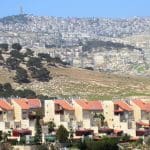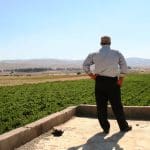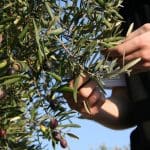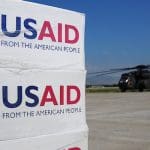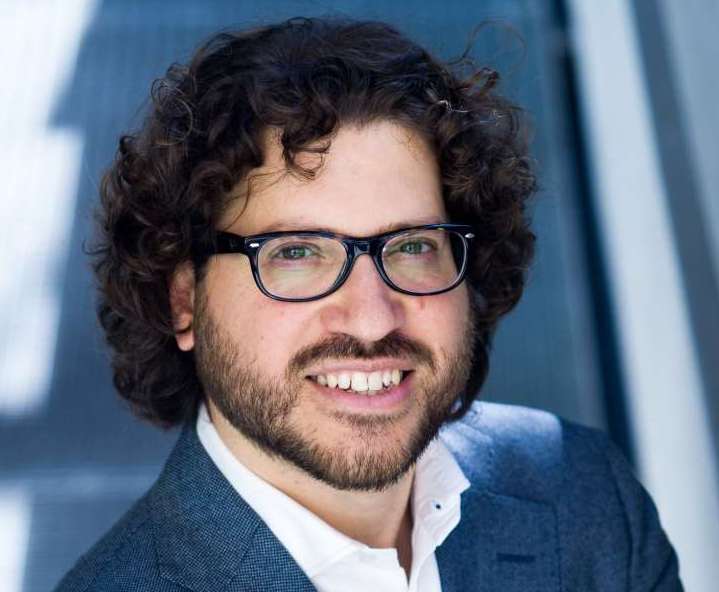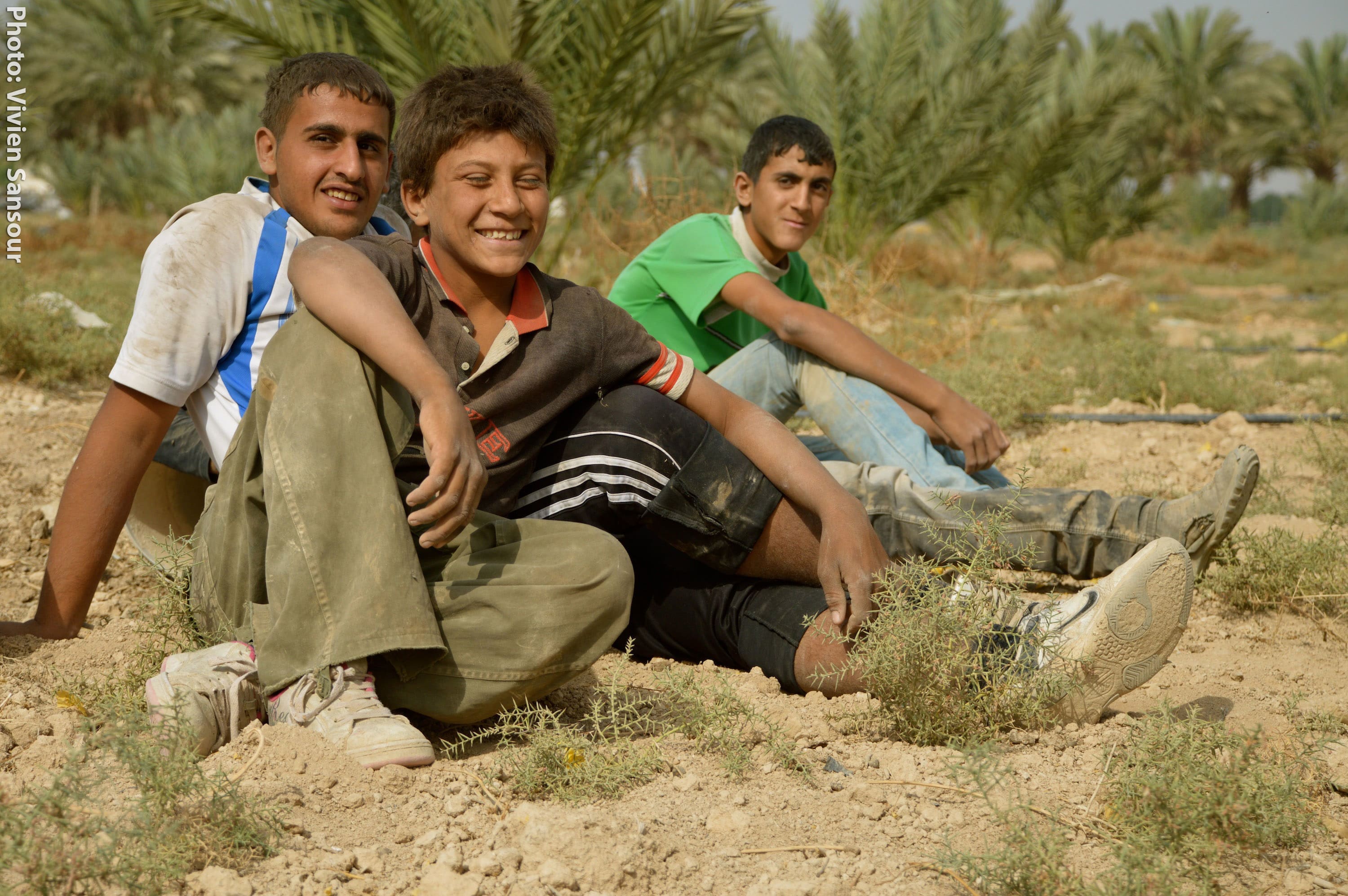
Overview
Like many farmers around the world, Palestinian farmers are the victims of a top down neoliberal development approach that attempts to dispossess them of their land and seeds in service of banks, multinational corporations, and agribusiness giants. An instrument of this approach has been the Palestinian Authority’s creation of industrial zones that will entrench Palestinians’ dependency on Israel and sustain the current detrimental economic framework.1
In this policy brief, Guest Author Vivien Sansour and Al-Shabaka Program Director Alaa Tartir give voice to a number of farmers currently trying to withstand these challenges. They focus in particular on farmers in Jenin and Jericho, where two large industrial zones are currently being constructed, and propose measures to help farmers regain their sovereignty and stay on their lands.2
Palestinian Industrial Zones: The New Threat
“One day we woke up to the announcement from the governor of Jenin that we must remove our crops from the land. If we didn’t do it willingly, they were going to do it for us. I had wheat at the time. I went down and harvested it so that it would not be destroyed.”3
These are the words of Mahmoud Abufarha, one of many farmers from the village of Al-Jalameh in the Jenin district in the northern part of the occupied West Bank who has been fighting to stay on his land. Today, Palestinian farmers like Abufarha are not only threatened by Israel’s relentless policy of land confiscation, they are increasingly facing land confiscation by the Palestinian Authority (PA) itself in order to build industrial zones that it claims will help farmers and create job opportunities. However, many farmers fear that these zones are only geared towards turning them into laborers instead of productive farmers and deliberately stripping them of their most valuable power source – land – while claiming to aid them.
Efforts to reduce Palestinian farmers’ power, however, are not new. In fact, multiple aggressive attempts and policies to practically eliminate Palestinian farmers have been underway since the beginning of the establishment of the state of Israel in 1948, when a determined effort to “modernize” farmers began through the introduction of new seeds and methods that decreased their independence and prioritized quantity over quality in order to cater to the new Zionist project. While Israel promoted itself around the world as the country that “made the desert bloom,” Palestinian farmers were being manipulated and used for experiments that have cost them many of their native seeds as well as large portions of their productive lands. After Israel’s occupation of Palestinian territories in 1967, it applied many of these methods to the West Bank. Since its creation in 1993, the PA has furthered this process rather than reversed it, leaving Palestinian farmers today in a dire situation.
In a global trend of industrializing agricultural land, farmers in Palestine are not unique: Growers all over the world have been under attack with attempts to weaken their autonomy over food production and increase their dependency on banks, multinational corporations, and agribusiness giants. Whether it is in Haiti, Honduras, India, or Palestine, small-scale family farming represents the last frontier of resistance to a worldwide capital-driven political system that dilutes people’s identities and strips them of their food sovereignty in order to ensure elite political and economic dominance of both human and natural resources.
For Abufarha, as for many farmers, agriculture is not just a source of income; it is a living example of the intimate relationship to the land, and it is deeply intertwined with identity, beliefs, and values. In the case of Palestine, it also drives farmers’ struggles for self-determination in the face of Israel’s settler colonization of their land. This sector, long neglected and often sabotaged by Palestinian leaders, international institutions, and Israel, faces a new threat: the creation of Palestinian industrial zones with an international or regional sponsorship. These zones are helping to deprive the Palestinian economy of its transformative potential; expand Israel’s territorial dominance in the Occupied Palestinian Territory (OPT); increase Palestinians’ dependency on Israel in both goods and labor markets; and displace small-scale family farming, which has been the sustaining power of the Palestinian people and culture for generations. But the PA, its dependent private sector, and their international sponsors disagree: They see the industrial zones as a pillar of the state-building effort that will bolster the Palestinian economy and achieve sustainable development.
Farming Under Occupation and Encroaching Neoliberalism
Palestinian farmers also struggle against other constraints. Since 1967, for example, Israel has drowned the Palestinian agricultural sector with chemical pesticides, herbicides, and fertilizers. Likewise, it has advocated for a system of mono cropping that has left farmers vulnerable to middlemen who dictate prices and crop varieties. It has also pushed the agricultural sector towards planting labor-intensive crops such as strawberries, cucumbers, and tomatoes, which are produced in chemically heavy greenhouses using cheap labor.4
Meanwhile, the Palestinian Ministry of Agriculture has never been able to protect farmers from an overflow of agribusiness products coming from Jewish settlements and filling local Palestinian markets. An official ban on settlement goods was only introduced in 2010, but it is often not enforced, and produce continues to come from Israeli agribusiness farms, even when local seasonal produce is available. As recently as June of 2014, the PA’s Ministry of Agriculture, which originally encouraged farmers to plant watermelons with promises to promote and protect their crop, was forced to allow an overflow of cheaply produced watermelons from Israel to enter the Palestinian market under the protection of the Israeli army. This now happens on a daily basis as a consequence of the asymmetry of power between Palestinians and Israelis, which is causing tens of Palestinian producers significant economic loss.
As many have noted, the funds allocated to the agricultural sector have not exceeded 1% of the PA’s total annual budget. At the same time, the agriculture sector accounted for only 1.4% of total international aid between 1994 and 2000, and today this number is down to 0.7%. By 2012, agriculture made up just 5.9% of Palestine’s GDP, falling from 13.3% in 1994. All this despite reports by the World Food Program that 50% of Palestinian households currently suffer from food insecurity.
The latest round of United States-brokered “peace” talks between the Palestine Liberation Organization (PLO)/PA and Israel indicate that further horrors lie in wait for the Palestinian farmer. In May 2013, US Secretary of State John Kerry promoted the Palestine Economic Initiative (PEI) at the World Economic Forum in Jordan, promising “a new model for development” that would raise $4 billion in international investment and, in turn, increase Palestine’s GDP by as much as 50% over three years, cut unemployment, and increase wages. (Some months later the $4 billion figure was adjusted upward to $11 billion.)
Early leaks of the PEI set off a wave of criticism of the traditional top down neoliberal development approach that is revered by international financial institutions. This is, in fact, no different than the failed economic model that international stakeholders have been imposing on the Palestinians since the beginning of the Oslo process, which proposes economic solutions for political problems.
Under the PEI, agriculture is one of eight “key sectors” singled out for development, mainly through the new Palestinian “special economic zones” (SEZ), i.e. industrial zones, with the claim that these zones will boost the economy and the agricultural sector in particular through agribusiness investment and higher profits. Already, two industrial parks are under construction in Jenin and Jericho. They have received international funding and are overseen by a PA-affiliated body, the Palestinian Industrial Estates and Free Zone Authority (PIEFZA).5
However, despite the claims that these industrial zones constitute a national Palestinian project, reports have warned that they will bring benefits for Israeli businesses, particularly companies based in Jewish settlements in the West Bank – illegal under international law – while destroying farming families and the most fertile stretches of land in the OPT. Critics have also described zones as “economic prisons,” making Palestinians even more subservient to Israel given that the PA has to rely on the occupiers’ goodwill for access, movement, and the transfer of tax revenues.
Furthermore, concentrating agricultural activity into these areas undermines Palestinian land ownership by removing them from their land and putting them to work in specified areas, typically near urban centers, in addition to severing the relationship between the consumer and the local farmer. This will inevitably initiate the transfer of populations and the forced urbanization of rural communities in the longer term, which will have far reaching detrimental consequences for Palestinian sovereignty and sustainability, not to mention the anticipated environmental damage that will occur from producing industrial waste in both agricultural and inhabited areas.
In defense of its collaboration with Israel, the PA has been making a serious effort to promote the industrial zones as benign developmental projects. In July of 2013, the then caretaker Palestinian prime minister, Rami Hamdallah, posed in front of cameras on the grounds of the Jenin Industrial Zone and declared that the zone will create over 15,000 jobs. In the same month, the Palestinian planning minister met Japanese, Jordanian, and Israeli ministers to discuss the development of the Jericho Agricultural Industrial Park (JAIP) – a zone described as a flagship project of Japan’s “Corridor for Peace and Prosperity initiative,” proposed with the goal of regional cooperation.6
Who Profits? Not the Farmers in Jenin
Palestinian farmers, however, doubt that they will benefit from these industrial zones. Naturally, the greatest tensions are with small-scale farmers who have not been consulted and see these zones as an existential threat. In fact, many small farms have already been abandoned because they could not compete with agribusiness products coming from Israel and its illegal settlements. Industrial zones will only compound the problem.
The Jenin Industrial Zone, also known as Al-Jalameh, had its beginnings in the Oslo process, and planning for it started in the late 1990s with the support of the German Development Bank. In 2000, the PA expropriated 933 dunums (230.5 acres) in total for “public use” and transferred it to PIEFZA. But, after the 2nd Palestinian Intifada began in 2000, the project was frozen. Only in 2007 did PIEFZA revive it, giving the concession to a Turkish partner, TOBB-BIS Industrial Parks Development and Management Company, to manage the park for 49 years. The most alarming fact about the Jenin Industrial Zone is that it is being constructed on land that is part of Marj Ben Amer, Palestine’s most fertile plain, which is part of the Fertile Crescent – historically the breadbasket of Palestine.
According to local farmers, the land on which the industrial zone is now being built has for generations been called El-Roba’yat. Residents of the nearby villages of Al-Jalameh and Burqin cultivate this part of Marj Ben Amer and make their livelihoods there. The ground is multi-colored indicating the varying shades of crop varieties, such as green spinach, sprouting sesame, and golden wheat stalks. Many people in surrounding villages and cities get their supplies of legumes and animal feed from this site where the industrial park’s factories and power plant will be built and expanded.
To build this industrial zone, the PA has been pushing growers out of El-Roba’yat through claims of eminent domain. This law allows the government to purchase land at compulsory low-prices for the “public good.” Some farmers, however, are refusing to give up their source of livelihood for the creation of an industrial zone that will end their way of life and destroy their natural and economic resources. Around 20 farmers recently filed a lawsuit against the PA challenging the claim that the land will be used for the public good.
Mahmoud Abufarha is one of the farmers who joined the legal fight to try to save his land. Driving across the valley in his old Subaru car, he recounted how his family acquired it: “We cut back on our daily bread so we could save up enough money to buy this property. I am 59 years old and I have been cultivating this land for 50 years. It is my life.” Almost tearful, Abufarha gazed at the construction site where metal fences and concrete structures are being erected in place of his wheat and barley fields.
Like many villagers, Abufarha believes that political and economic decisions are being made that show no respect for his heritage and livelihood. “The authorities say that this project aims to serve the public good. I grow food. Isn’t that more beneficial for the public than an industrial zone that serves only big factories? It seems as if our lives are like a big cake and the PA, Israel, and the donors all want a piece of it without consideration to what will happen to us. It is all about profits, not public good.”
Abufarha emphasized that there were other ways of assessing the value of the land. “One thousand two hundred dunums [296.5 acres] feed more than 20,000 people a year, but now we will have to wait for our loaf of bread to come from other countries. The land is life. Without our lands we have no life.”
Despite concerted efforts to save Marj Ben Amer valley from its pending destruction, the court dismissed the case that the farmers filed against the PA. In April of 2014, the farmers were served papers forcing them to accept compensation for their lands, which they had previously refused to sell. PA affiliates appraised the lands, and the prices were set without negotiations with the landowners. According to Abufarha, “I was told that whether I want to sell or not has become irrelevant and that the land is now the property of the industrial zone. I was also informed that money would be deposited in my account as compensation whether I want to take it or not.”
The Al-Jalameh village council head, Khaled Mir’eh, explained that now that the farmers had failed to prevent the zone from being established, the village council was trying to find ways to minimize the damage as much as possible. Fear of toxic waste being dumped in whatever is left of their lands is at the forefront of their concerns. “It is unfathomable that an industrial zone would be built on cultivable lands in a populated area. This whole project was imposed on our community, and we now have to deal with the anticipated consequences, most notably the environmental and public health ones.”
Pointing to a rocky hill in the horizon, Mir’eh continued, “We are not against development. But if we wanted to build an industrial zone, we would have chosen this hill, which is far from people’s homes and is barren.” When asked what alternatives he would have suggested had he been consulted, he said, “I think the majority of people in the village would have welcomed a project that invested in what we already have. A project that would bring in small-scale businesses to market the products of the farmers or enhance the things we already make while paying careful attention to the well being of the people and the future of our village.”
In no uncertain terms, he affirmed, “We have many alternatives in Palestine that already exist. If they were interested in creating jobs, then they would have invested in strengthening the many farmer and producer cooperatives, which would have preserved the land and the environment and would have guaranteed the creation of local jobs for local people serving not just our village but all of Palestine.”
From Jenin to Jericho
Whereas the Jenin Industrial Zone is still in its primary stages, the infrastructure of the Jericho Agricultural Industrial Park is almost complete. Piles of metal from one of the already operating factories sit next to the solar panels funded by the Japanese International Cooperation Agency (JICA) to supply green energy for the park. Subhi Hallaq, an engineer representing the Jerusalem District Electricity Company noted, however, that the power these panels will generate will not be sufficient, which means that additional electricity will have to be bought from Israel and Jordan. Meanwhile, the residents of Jericho continue to suffer from regular power shortages.
JICA has been criticized for producing inadequate feasibility studies and for operating JAIP without accountability mechanisms or transparency measures. The strongest criticism, however, is that JAIP’s success not only depends on collaboration between the colonizers and colonized, but the park itself is located in the fertile Jordan Valley, which Israel wants to control in any future Palestinian state. Given Israel’s keen interest in this area, many of the adjacent agricultural lands are controlled by Jewish settlements, which are predicted to be among the primary beneficiaries of the industrial park rather than Palestinian farmers.
Sitting at the edge of what was once a prolific vegetable farm, agronomist and nursery owner Abu Muhanad al-Fatyani explained how the rules and conditions of the JAIP make it impossible for farmers to participate: “Some people affiliated with the Palestinian Authority told us that they could offer us annual leases for the use of our property inside the industrial zone. But the lease they are offering is $30 per meter, which translates to $30,000 a year per dunum,” Al-Fatyani said, “There is not one single farmer who can afford that. Even if farmers put their money together to open a factory, it would not be feasible. Only big investors can afford such deals.”
Who these investors will be remains an open question as does the types of factories that will be based in the zone. This ambiguity exacerbates the concerns of Jericho’s small-scale farmers like Abed Alqader. He explained that farmers are apprehensive because they “have good reason to believe that these industrial zones are not designed to produce anything. Rather, they will serve as packaging facilities for agribusiness produce from the settlements. If these zones were aimed to support us, the Palestinian farmers, why have we not been included in any of the discussions?” Abed Alqader asked. “Our farms are family farms. They cannot support such massive industrial operations, and we have not been approached about increasing production or acquiring new skills, so how can they say that this is an agro-industrial zone intended to help the Palestinian farmer?”
One kilometer away from the JAIP are the date fields of Nasser Ismail. As an organic grower, Ismail prides himself on using clean water to irrigate his date trees. As he piled organic manure into a heap for his sons to distribute evenly for each tree, Ismail said, “We are being challenged by an overflow of settlement dates that are produced using untreated sewage water and so are much cheaper.” When told that the industrial zone nearby will open date and other produce packaging facilities, he was shocked, and said, “If this is true, than this means it is the end for us. These packaging facilities are geared towards mass production of agribusiness fields. I am a small farmer. This is going to put me out of business.”
Perhaps more than anyone Ismail knows what it means to fight to stay afloat. The signing of the Oslo Accords and the Paris Economic Protocol introduced regulations that prohibited Palestinians from selling their produce to Israel. As a result, Nasser lost 84,000 ILS (almost $25,000). It was then that he had to stop growing figs and grapes and start growing dates as a cash crop. Facing a new challenge and more uncertainty because of the neighboring industrial zone, Ismail said that he might not have the strength to carry on if he loses his farm. By contrast, his brother Abu Issa said that he is determined to farm despite all obstacles: “The love of the land and agriculture is like a bug that lives in your blood: It is eternal. Even if I just plant a pot of parsley; I have to grow food. And even if I lose, I will never leave the land.”
A Call to Civil Society
Since 2011, Israel has been giving permits to some farmers from both the West Bank and Gaza to attend its largest annual agricultural conference, which brings together cultivators, buyers, distributors, exporters, marketing chains, and others to network and make business deals. The same individuals who were once deemed “security threats” to the state of Israel are now honorary guests at a fancy event in Tel Aviv. The invitations extended to these farmers, whose visits are funded by USAID, appear to be another attempt at co-optation coming out of Secretary Kerry’s economic initiative, namely to convince small-scale Palestinian farmers to buy into the agribusiness schemes. If true, this will likely only create more debt and further disconnect Palestinian farmers from their land.
Palestinian farmers need strong advocates in defense of their rights against the policies of both Israel and the “state” of Palestine. As local actors with the most direct access to international organizations and donors that impact development policy in Palestine, Palestinian civil society and non-governmental organizations (CSOs and NGOs) have a special responsibility to act in defense of Palestinian farmers, coalescing around the work that organizations like the Union of Agricultural Work Committees (UAWC), Bisan Center for Research & Development, and Sharaka Community Supported Agriculture are already doing. More specifically CSOs and NGOs must help to:
- Secure support and resources so that farmers can bolster their fight to resist industrial zones.
- Open avenues for farmers to directly confront the PA themselves, including the PA judicial system that denies the rights of these farmers.
- Develop projects in coordination with community leaders to support farmers with alternative infrastructure for greater production, local marketing, and local value chains.
- Organize a public communications campaign to expose the myth of the state-building project, which serves a global neoliberal agenda at the expense of the Palestinian farmer.
The Palestinian people cannot wait for policy to change: Organized and sustained community efforts are needed to reinvest in local agriculture. A major focus should be reconnecting consumers directly to farmers. This includes community financing of agricultural enterprises and projects – which cooperative structures could facilitate – for-profit or non-profit start-ups that can build tools that make sustainable agriculture more affordable and feasible for farmers, vendors, and consumers. Farmers are the Palestinians’ last frontier for freedom and a major pillar for creating an alternative development model based on an economy of resistance and steadfastness. Agriculture and food sovereignty are two sources of power that make it possible for people to demand their rights and preserve their ancient and diverse heritage. With no means left to sustain themselves, Palestinians would lose one of the most important elements of resistance they have.
- Al-Shabaka publishes all its content in both English and Arabic (see Arabic text here.) To read this piece in French, please click here. Al-Shabaka is grateful for the efforts by human rights advocates to translate its pieces into French, but is not responsible for any change in meaning.
- The authors would like to thank the farmers, Thaer Washaha (Bisan Center for Research & Development), and Rena Zuabi for their valuable contribution to this policy brief.
- Unless stated otherwise, quotations are from interviews with the authors.
- For further information, see George Kurzom, _[Towards Alternative Self-Reliant Agricultural Development](http://sites.birzeit.edu/cds/research/publications/2001/5.pdf)_ (Birzeit: Birzeit University Development Studies Programme, 2001), and [MA’AN Development Center](http://maan-ctr.org/) and the [Union of Agricultural Work Committees (UAWC)](http://uawc-pal.org/mainEn.aspx).
- For further analysis, see “Neoliberal Palestine” in Ali Abunimah, _[The Battle for Justice in Palestine](http://www.haymarketbooks.org/pb/The-Battle-for-Justice-in-Palestine)_ (Chicago, Illinois: Haymarket Books, 2014), 75-124, and the publications of [Bisan Centre for Research and Development](http://ar.bisan.org/industrialzones).
- The Japanese foreign minister [argued](https://al-shabaka.org/sites/default/files/Tartir_BCRD_Paper_En.pdf), “When the concept of the Corridor for Peace and Prosperity is materialized, the regional problem will be solved through economic, rather than security or political ways.”








